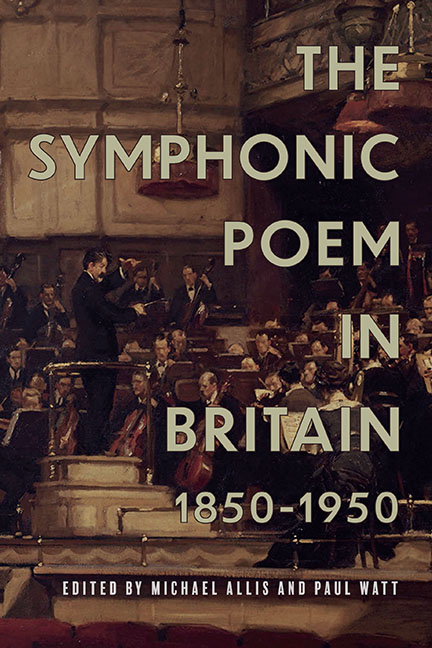5 - The Rise of the Symphonic Poem in Glasgow, 1879–1916: A Documentary History
Published online by Cambridge University Press: 23 October 2020
Summary
THE development of significant cultural infrastructure such as symphony orchestras, and the strategies adopted to underpin musical growth and sustainability represent a complex network of influences and influencers. This chapter considers the case of the Glasgow Choral Union Orchestra, which was founded in the 1870s, forging a more independent identity and national remit as the Scottish Orchestra before the turn of the twentieth century, to reveal the strategies that were employed by conductors and boards of management to attract, educate and retain audiences for orchestral music. Repertoire choice is examined in detail to determine the role of programme music in that agenda, particularly under the three longest serving conductors of the orchestra before World War I: August Manns (1825–1907), Frederic Cowen (1852– 1935) and Emil Młynarski (1870–1935), whose other conducting appointments provided a direct connection to trends in London and Europe and contributed to the lines of influence that brought new repertoire to Glasgow audiences. The period from the appointment of Manns in 1879 to the departure of Młynarski in 1916 also saw a transition from programmatic ‘concert overtures’ and similar works to the establishment of the symphonic poem in Glasgow, and this research aims to reveal key factors that shaped music-making in this formative period.
The substantial collection of documents pertaining to the Glasgow Choral Union held in the Scottish Archives contains invaluable material for mapping programming trends and includes the extraordinarily comprehensive documentation and interpretation by Robert Craig of musical undertakings and committee deliberations of the Choral Union in twenty-four handwritten volumes compiled from committee records, printed programmes and newspaper accounts. This work provided the background for his Short History of the Glasgow Choral Union that was published in 1944 for the centenary of the Choral Union. Where original printed programmes were missing and could not be located through other archival collections, Craig's faithful transcriptions of programmes and indexes of repertoire proved an invaluable resource for this research. Programmes were correlated against concert reviews published in The Glasgow Herald, allowing the verification of details of performances, providing valuable insights into attitudinal shifts in audience and critical reception and identifying strategies employed to appeal to the social aspirations and national identity of Glasgow audiences.
- Type
- Chapter
- Information
- The Symphonic Poem in Britain, 1850–1950 , pp. 147 - 178Publisher: Boydell & BrewerPrint publication year: 2020

